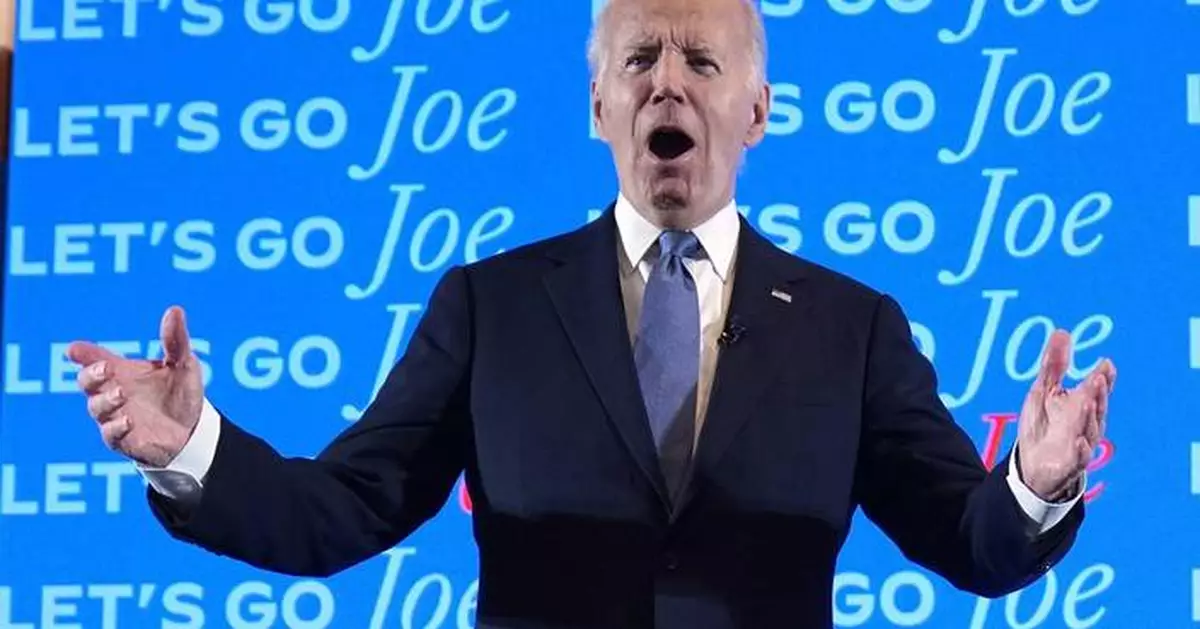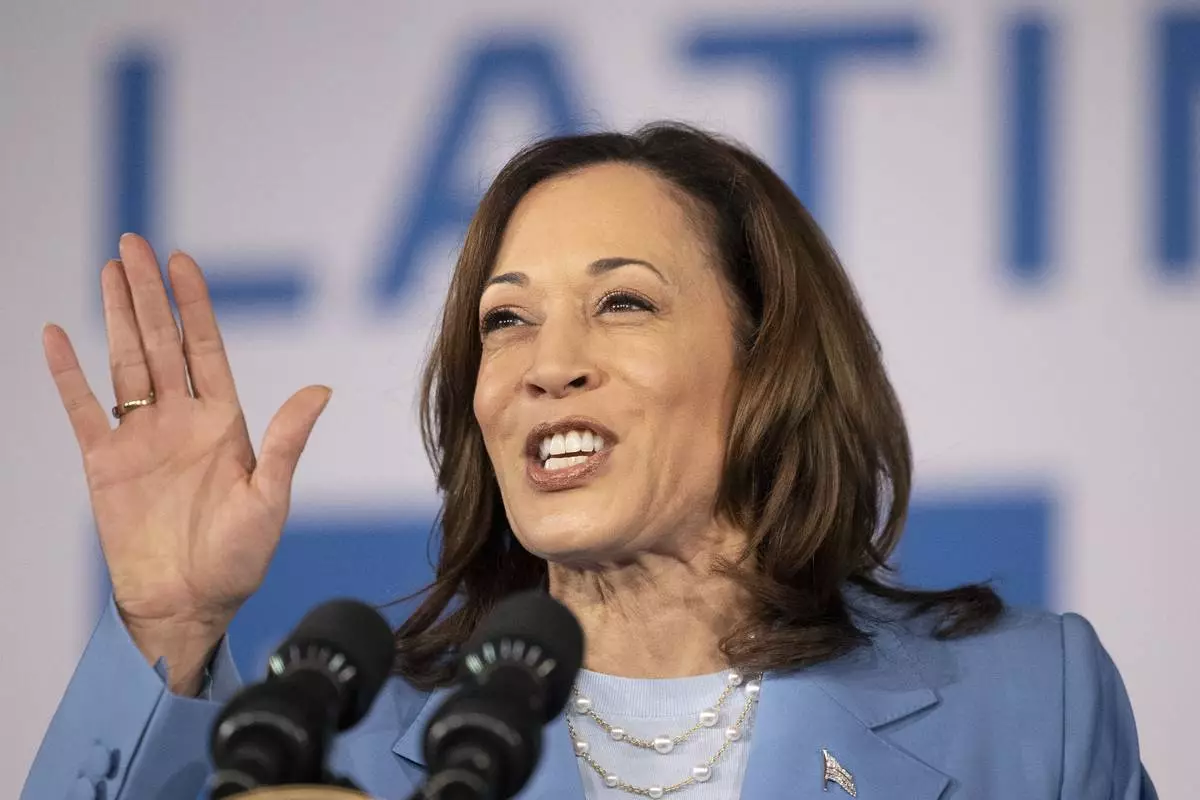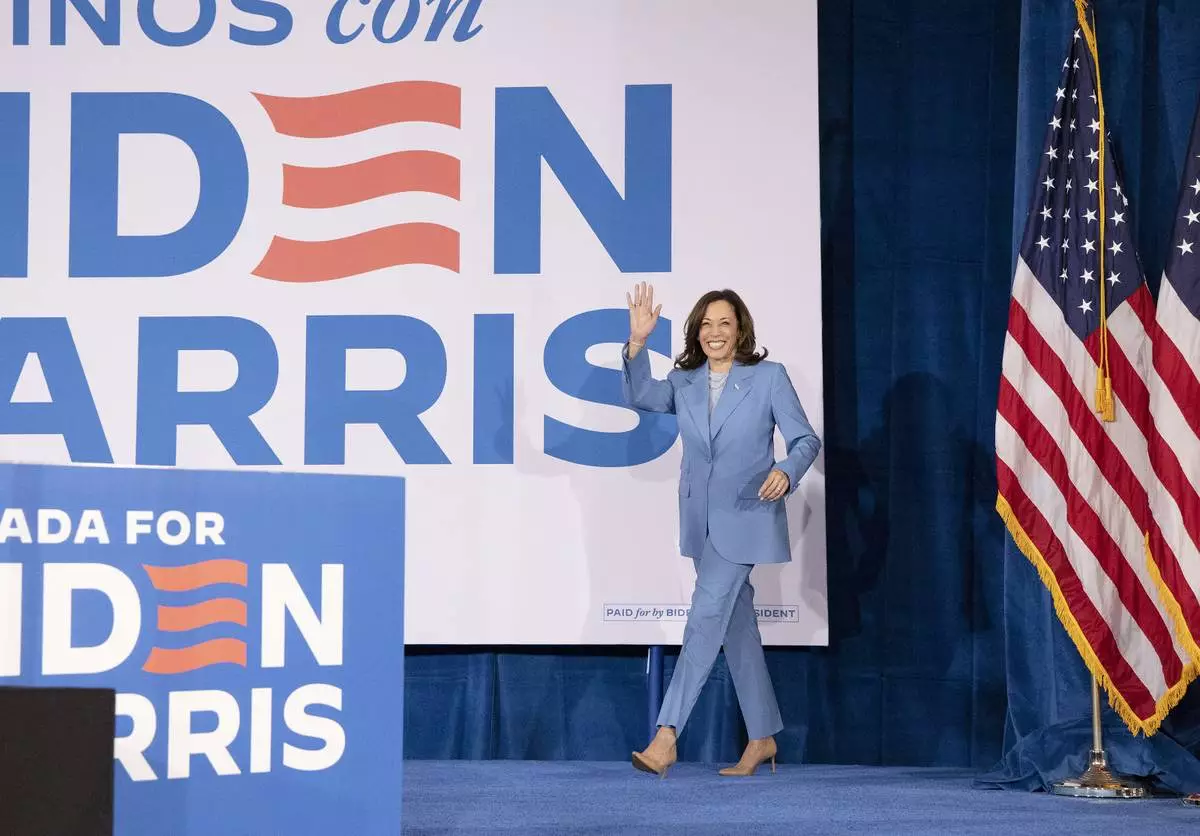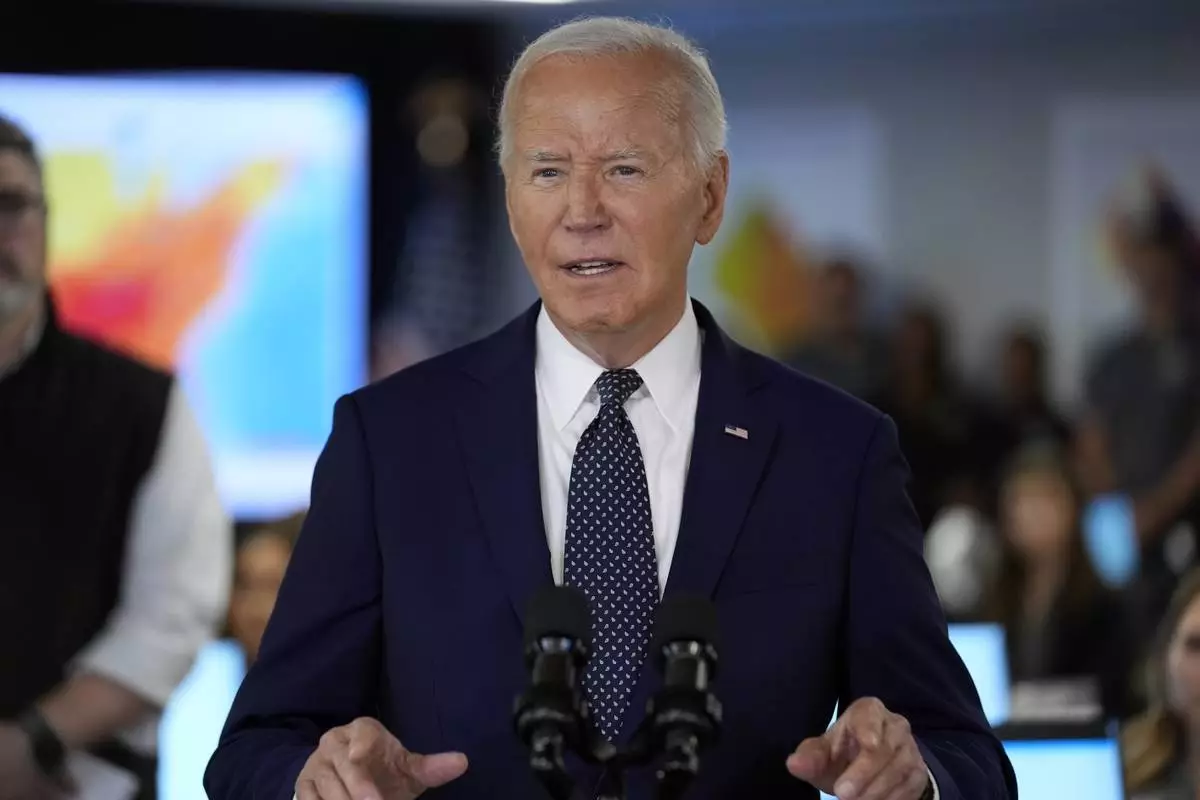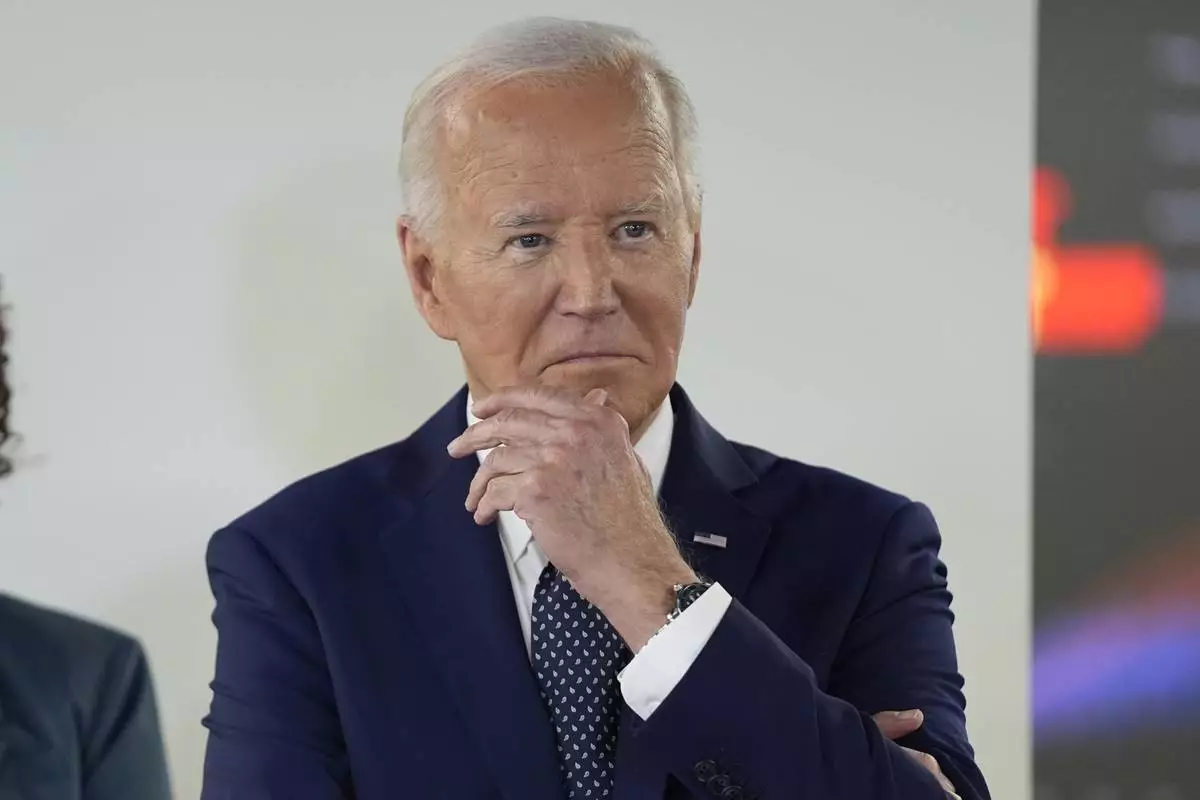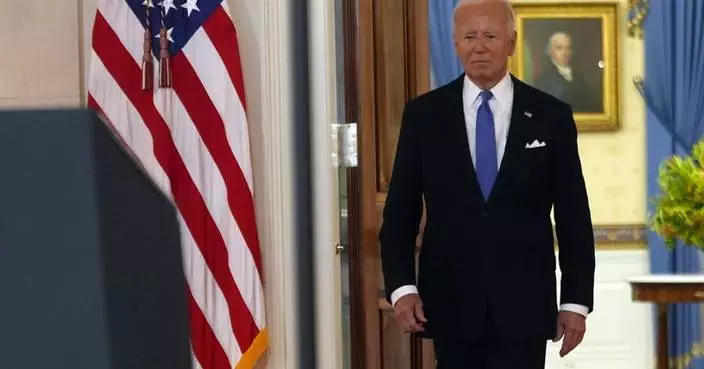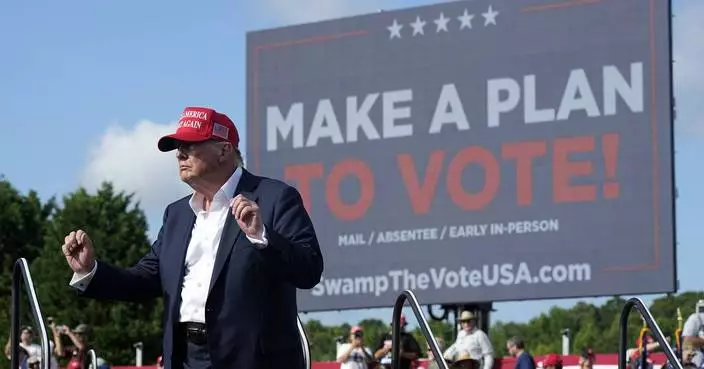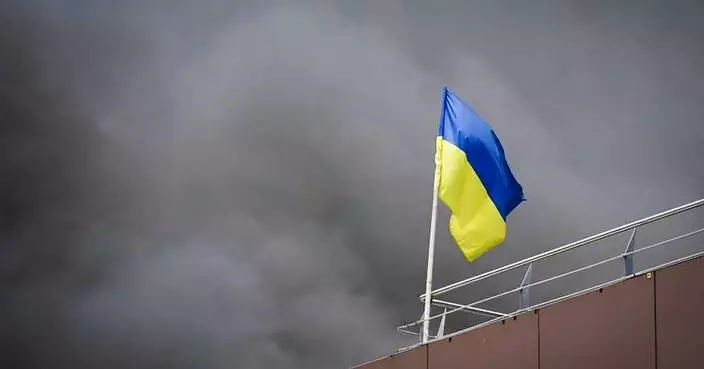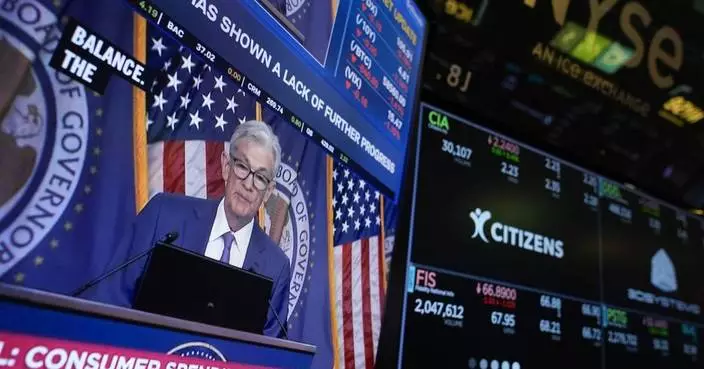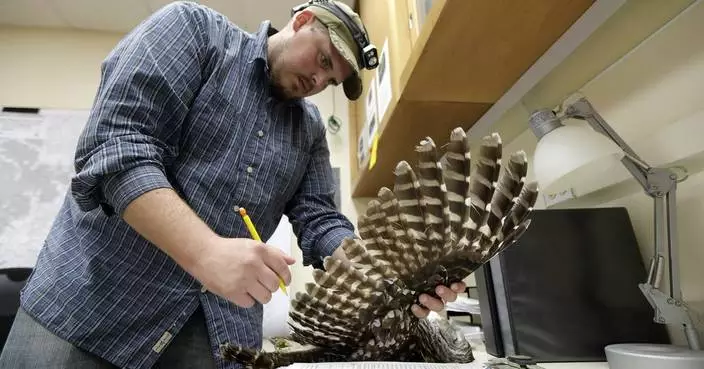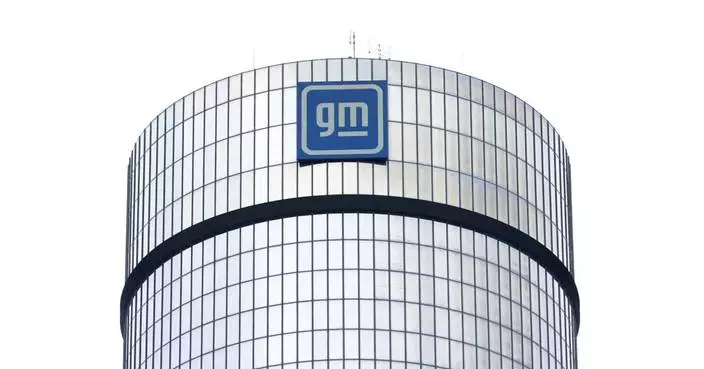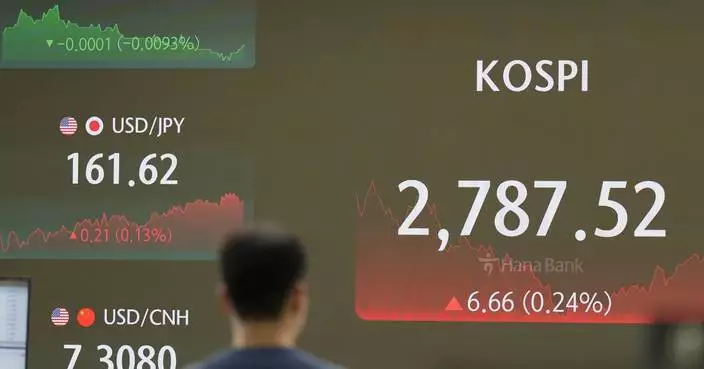As President Joe Biden attempts to reassure supporters following his widely panned debate performance on Thursday, Democrats still worried about having him at the top of the ticket in November have few realistic options at their disposal, at least as far as party rules and historical precedent are concerned.
Those fretting over Biden as the Democratic nominee have some alternative, albeit unlikely, scenarios to consider: One involves Biden stepping aside voluntarily, the other, and by far the least likely, involves an 11th-hour effort to defeat him at the convention by winning over pledged delegates he has won in the nominations contests, who are technically obligated to support him only by “good conscience” in the party’s rules.
Challenges to the presumptive nominee can occur, but there are significant hurdles, according to Elaine Kamarck, a senior fellow at the Brookings Institution and an expert in the party's nominating process.
“It has been tried, and it usually fails,” said Kamarck, who is a longtime member of the Democratic National Committee's Rules and Bylaws Committee.
“You would need a strong and persuasive alternative to Biden, and right now there isn’t one," she added.
The path to picking a new standard-bearer would be clearer if Biden were to step aside voluntarily, which he’s given no indication that he’s considering.
For some Democrats, the idea that Biden won't be the nominee remains a ludicrous hypothetical scenario. “It’s typical Democratic overreacting,” said Bill DeMora, the convention director for the Ohio Democratic Party.
Under the Democratic presidential nomination process, candidates are entitled to a share of delegates in each state in rough proportion to the votes they received in that state’s primary or caucus. The candidate who receives a majority of delegate votes wins the party’s nomination.
In 2024, Biden swept all but one primary or caucus and the vast majority of delegates at stake in those contests. Those delegates are considered to be “pledged” to Biden, which means they were selected to fill delegate slots that Biden won as a result of his vote performances in various primaries and caucuses. However, under party rules, that pledge is more of a strong expectation rather than an iron-clad, legal obligation.
DNC rules encourage but don’t specifically require delegates to vote for the candidate they’re pledged to support. Instead, the rules say, “All delegates to the National Convention pledged to a presidential candidate shall in all good conscience reflect the sentiments of those who elected them.”
In other words, the thousands of delegates Biden won during the primary season are bound only by their consciences to actually cast their votes for Biden when it comes time to select a nominee, although it would be unprecedented for delegates on a wide scale to support a candidate other than the one they were pledged to support.
One feature of the party's rules that makes a delegate revolt against the presumptive nominee unlikely is that the candidate has the right to review and make changes to their slate of delegates in each state, ensuring that delegate slots are filled by supporters loyal to the candidate.
The DNC adopted the “good conscience” language in 1982 after multiple rounds of reforms to its presidential nomination process.
In 1980, the Democratic National Convention adopted a rule requiring delegates to vote for the candidate that they were selected to support. The rule was an effort by supporters of then-President Jimmy Carter to bolster his reelection campaign against the insurgent candidacy of Sen. Ted Kennedy of Massachusetts. Kennedy supporters dubbed the measure “the robot rule,” in that it would not allow delegates to exercise their own discretion when casting their votes at the convention.
After Carter’s defeat to Republican Ronald Reagan, the party passed additional reforms in 1982 in an effort chaired by then-North Carolina Gov. Jim Hunt. The Hunt Commission repealed “the robot rule” and replaced it with the “good conscience” language, loosening the party’s grip over its pledged delegates, though leaving in place the expectation that they will follow the will of primary and caucus voters in their states. The Commission also created unpledged delegate slots for certain party leaders and elected officials, positions that have been informally called “superdelegates.”
The 2024 convention rules don’t directly address what happens if the candidate with the most pledged delegates drops out before the convention. However, there’s a general understanding that if a candidate drops out, the delegates pledged to that candidate are free to support another candidate of their choice. That’s how Democrats interpreted the rules when Rep. Dean Phillips of Minnesota ended his presidential primary bid in March; Phillips said he would encourage delegates that he won to vote for Biden instead.
“There are not always rules for things that aren’t likely to happen, like the leading candidate dropping out," said Hans Noel, an associate professor at Georgetown University's Department of Government.
Under this circumstance, a withdrawal speech would be likely in which a candidate “may or may not signal his preference for someone to replace him,” Kamarck said. “That would not bind the delegates but would obviously carry a lot of weight.”
If a Democratic nominee withdraws after the convention, the party rules are clearer. If the nominee resigns, dies or is otherwise unable to run for president, the DNC — conferring with Democratic leadership in Congress and the Democratic Governors Association — fills the vacancy. But withdrawing from the race after the convention could pose different challenges. For starters, Democrats could bump up against ballot access deadlines similar to the one in Ohio that prompted the party to plan to nominate Biden virtually before the convention, although Ohio lawmakers subsequently moved their deadline. Also, a postconvention withdrawal would leave any new nominee very little time to organize a campaign, while allowing the hand-wringing over Biden to drag on for another two months.
There's no exact precedent for replacing a presidential nominee or presumptive nominee. The last president who voluntarily chose not to run for another term in office was Lyndon Johnson, who dropped out of the 1968 race after the primaries had already begun but before officially receiving the nomination. Then-Vice President Hubert Humphrey didn't participate in the primaries but was still chosen by a large majority of delegates at the convention. The backlash to the process that resulted in Humphrey's nomination prompted the party to change its rules, resulting in today's primary system that rewards candidates based on their performance on primary and caucus ballots.
Four years later, Democratic vice presidential nominee Thomas Eagleton of Missouri withdrew from the ticket following his disclosure that he had once undergone psychiatric treatment. The DNC met the following week and held a vote selecting Sargent Shriver, brother-in-law to the late President John F. Kennedy, to replace him.
Both Presidents Gerald Ford, a Republican, and Jimmy Carter, a Democrat, faced strong challenges at their conventions when they each ran for another term in 1976 and 1980, respectively, although those challenges emerged much earlier in the calendar. In both elections, the president won the nomination but lost in the general election.
The procedures for the party nomination are set by the state party, which has leeway to change its rules at any time. In the weeks before the convention, the DNC's Rules and Bylaws Committee could vote to implement new rules addressing what happens if a leading nominee withdraws before the convention — or if it wished to, more tightly binding delegates to the presumptive nominee.
“The RNC and DNC both write their own rules,” Noel said. “And they can change them when they see a need.”
———
Associated Press writer Christina A. Cassidy in Atlanta contributed to this report.
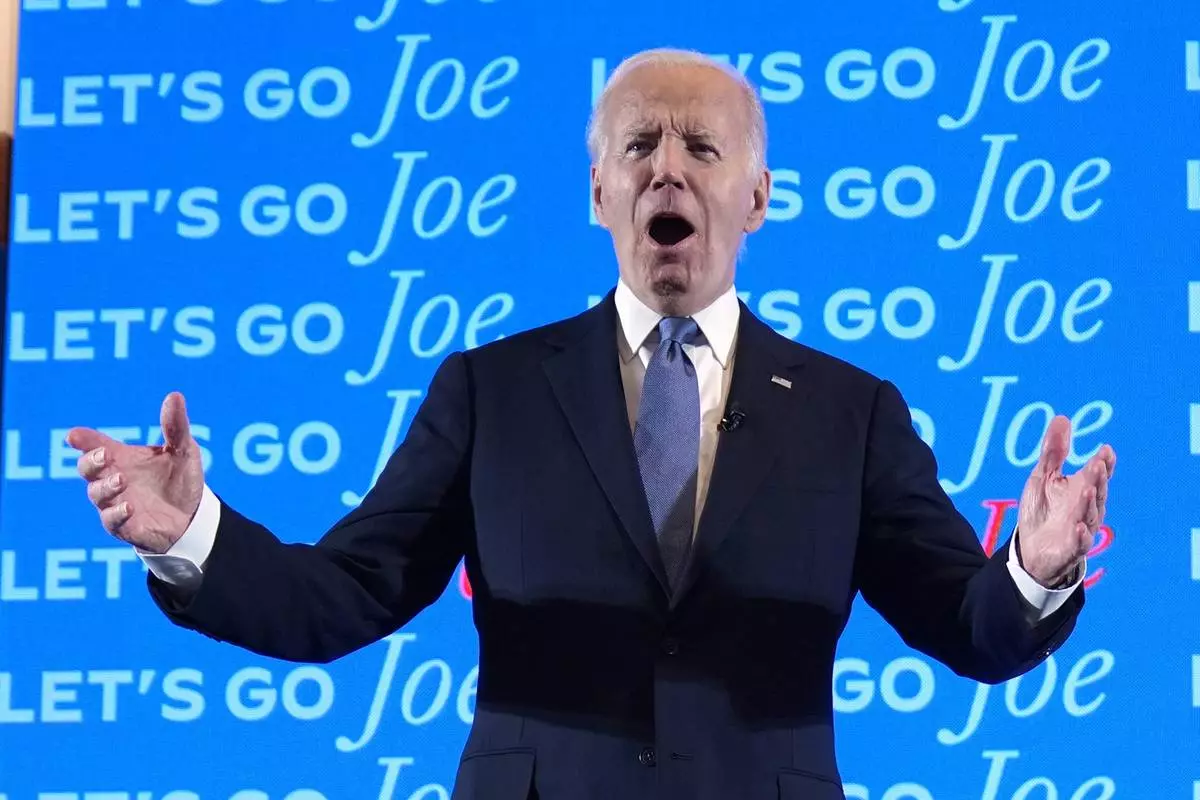
President Joe Biden visits a presidential debate watch party, Thursday, June 27, 2024, in Atlanta. (AP Photo/Evan Vucci)


